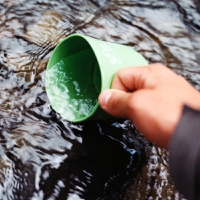

In response to the court ruling, Jonatan Kleimark, senior chemicals and business advisor at ChemSec, highlights the potential impact of the legislative crackdown on PFAS.
“It is another problem for the PFAS producers and users and shows that the legislative crackdown is justified. We have a severe PFAS crisis, causing health and environmental problems everywhere. We need regulation to reduce the amounts of these chemicals in products and processes,” he tells Packaging Insights.
Lawsuit background
The contamination stemmed from fire foam used in fire drills at Blekinge air fleet, seeping into the Brantafors waterworks in Ronneby municipality. Residents in the affected area took legal action against the municipal water company, asserting that the company was obligated to compensate them for personal injury under the Product Liability Act.
This act stipulates that damages must be paid if a product, such as drinking water, has caused personal injury due to a security flaw. The damages may encompass costs, loss of income and physical or mental suffering resulting from the injury.
The district court initially approved the residents’ action, but the Court of Appeal rejected the claim. It argued that while the high levels of PFAS in the residents’ blood increased the risk of adverse health effects and diseases, it did not constitute a personal injury.
However, the Supreme Court took a different stance, emphasizing that the investigation provided sufficient support to conclude that a defective condition had already occurred in each appellant, manifesting as elevated PFAS levels in their blood.
Judge Jonas Malmberg of the Swedish Supreme Court explained, “through the drinking water, the residents have been affected by high levels of PFAS in the blood, which entails an increased risk of certain negative health effects and diseases.” Malmberg concluded that the high PFAS levels represented a considerable physical deterioration, qualifying as a physical defect and, consequently, a personal injury under tort law.
Holding downstream users responsible
ChemSec underscores that PFAS in drinking water is a persistent issue in various Swedish municipalities, with Ronneby being just one example. Earlier this year, a Swedish Society for Nature Conservation study unveiled alarming PFAS levels in over half of the country’s drinking water, affecting at least two million Swedes.
As news of the successful Ronneby case spreads, ChemSec anticipates that more individuals and communities will be inspired to seek compensation for the environmental and health damages caused by PFAS contamination.
Regarding the lessons for packaging manufacturers and producers, Kleimark suggests a shift in responsibility, noting, “so far, the responsibility for the PFAS emissions has not been on the ‘users,’ such as the packaging manufacturers. However, in light of the focus on PFAS, the downstream users can also be held responsible.”
He emphasizes the need to move away from PFAS, urging companies to identify their PFAS footprint and transition to alternatives.There has been an ongoing crackdown on PFAS contaminating water streams.
“Regulation is justified, and we see a political will in both the EU and US to take action on PFAS.” He underlines that consumers are increasingly aware and demanding new solutions, while investors are pressuring companies to phase out PFAS, indicating a movement toward PFAS-free alternatives.
In terms of industry preparation for a PFAS-free future, Kleimark outlines a three-step approach: “Identify the uses and impact, investigate alternatives and phase out.”
He acknowledges the challenges but stresses the importance of starting the journey early to benefit companies and the planet. “There are no alternatives today for some uses, but those can get a time-limited derogation, at least within the EU restriction. For many uses, we can substitute already, and if we can, we should,” Kleimark suggests.
PFAS crackdown
Recently, Just Zero and more than 40 environmental organizations, scientists, public health advocates, and farmers across the US called on the country’s Environmental Protection Agency to take stronger action against the spread of PFAS and microplastics from Massachusetts’ Deer Island Wastewater Treatment Plant.
Meanwhile, a class action lawsuit was filed against the Brita Products Company for allegedly misleading consumers about the effectiveness of its water pitchers, dispensers and filters in California, US. The lawsuit alleges deceptive advertising while Brita claims its filters can remove or reduce common hazardous contaminants from drinking water, including the Common Hazardous Contaminants to below lab detection limits.



